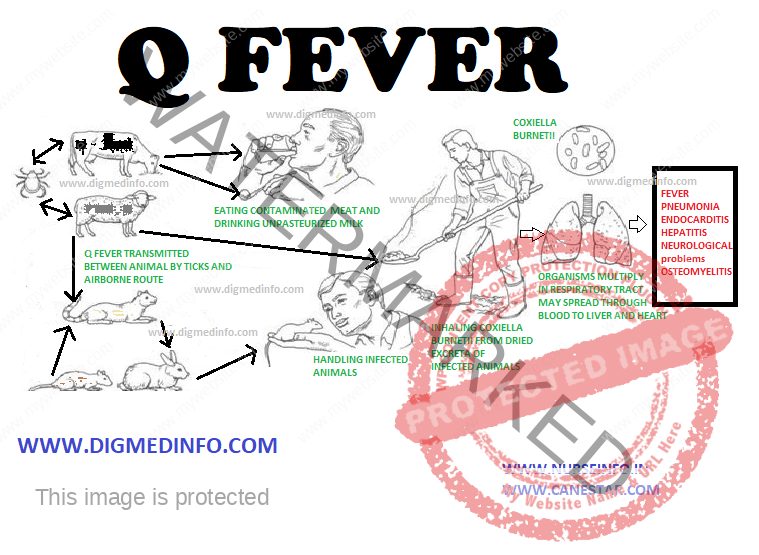Q FEVER – Forms, Acute Q fever, Chronic Q Fever, Diagnosis, Treatment and Prevention
It is a zoonosis caused by coxicella burnetii- It is a gram negative pleomorphic coccobacillus which is having homology with Legionella pneumophilia
Two forms exist
1. A small cell variant (SCV) and
2. A large cell variant (LCV)
The SCV exists in nature and it is resistant to environmental factors. The LCV develops in the host’s monocytes and multiplies. It is the pathogenic form. The disease exists an Australia, India, USA and other areas. Animal reservoirs include cows, goats, sheep, dogs, cats and others. Organisms are shed in milk, feces, urine and products of conception. Humans become infected by ingestion of infective material or droplet infection through the respiratory tract. Incubation period is 12 to 30 days.
Acute Q Fever
This resembles influenza clinically, with varying degrees of pneumonia and hepatitis. Fever lasts for an average of 10 days (range 10-57 days).
Chronic Q Fever
This occurs in 60-70% of infected persons. It leads to endocarditis which supervenes on pre-existing valvular lesions. Untreated, the condition is fatal. Q fever may recrudesce during pregnancy and lead to abortion. Other manifestations include osteo-articular infections and hepatitis.
Diagnosis
Antibodies can be detected by indirect immunofluorescence.
Treatment
Acute Q fever —doxycycline 100 mg bid po for 14 days. Chronic Q fever—life long doxycycline therapy may be necessary. Addition of hydroxycloroquine 200 mg tds po given for 18 months favours recovery. It acts synergistically with doxycycline.
Prevention
Pasteurization of milk is partly protective. Occupational risk can be reduced by vaccination in persons exposed to the risk.


